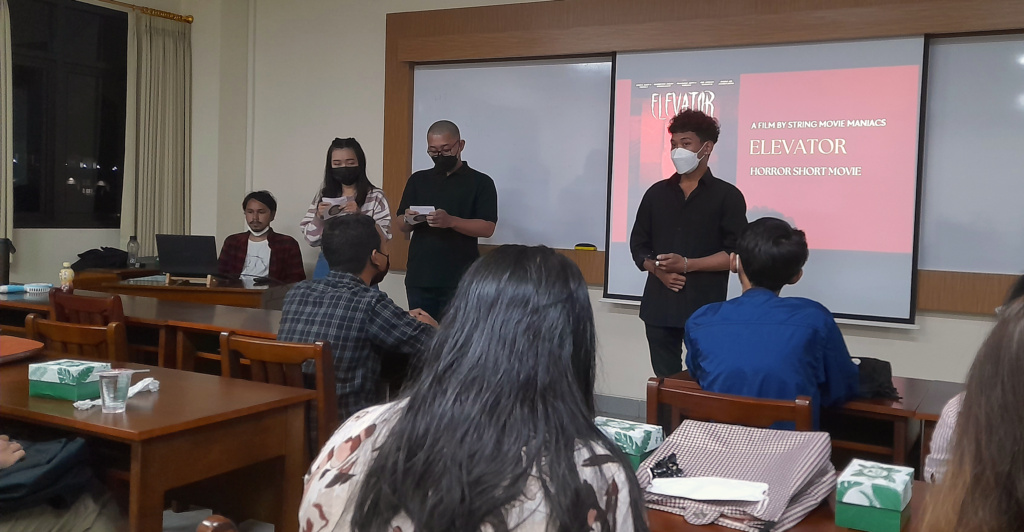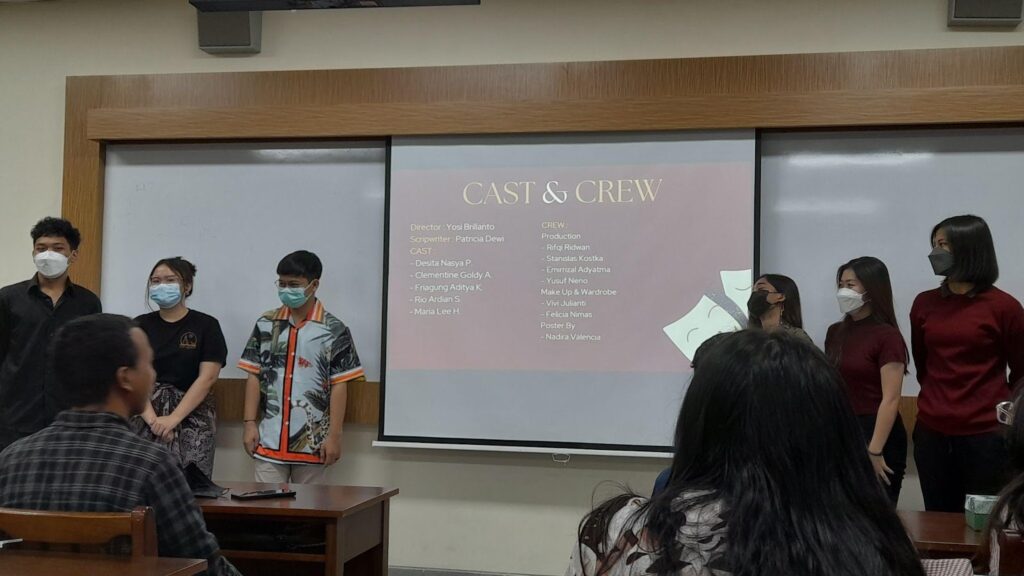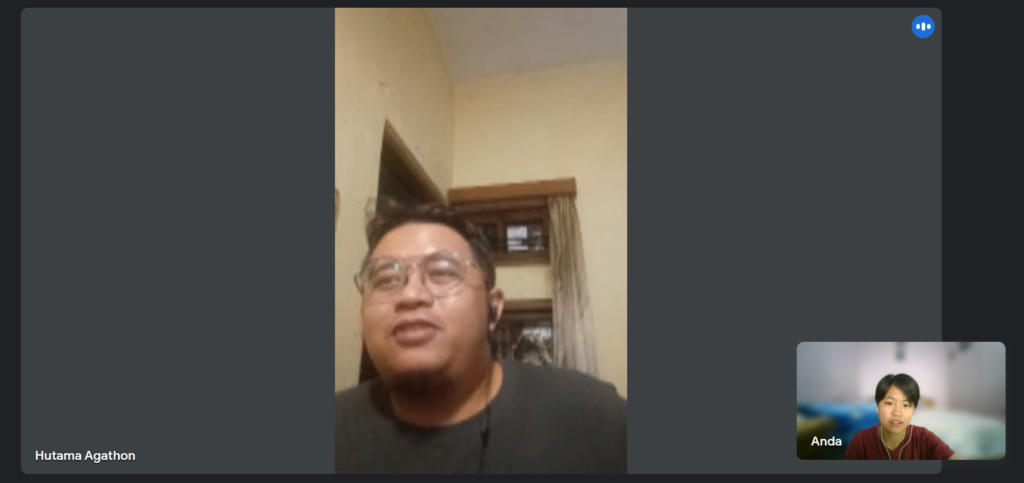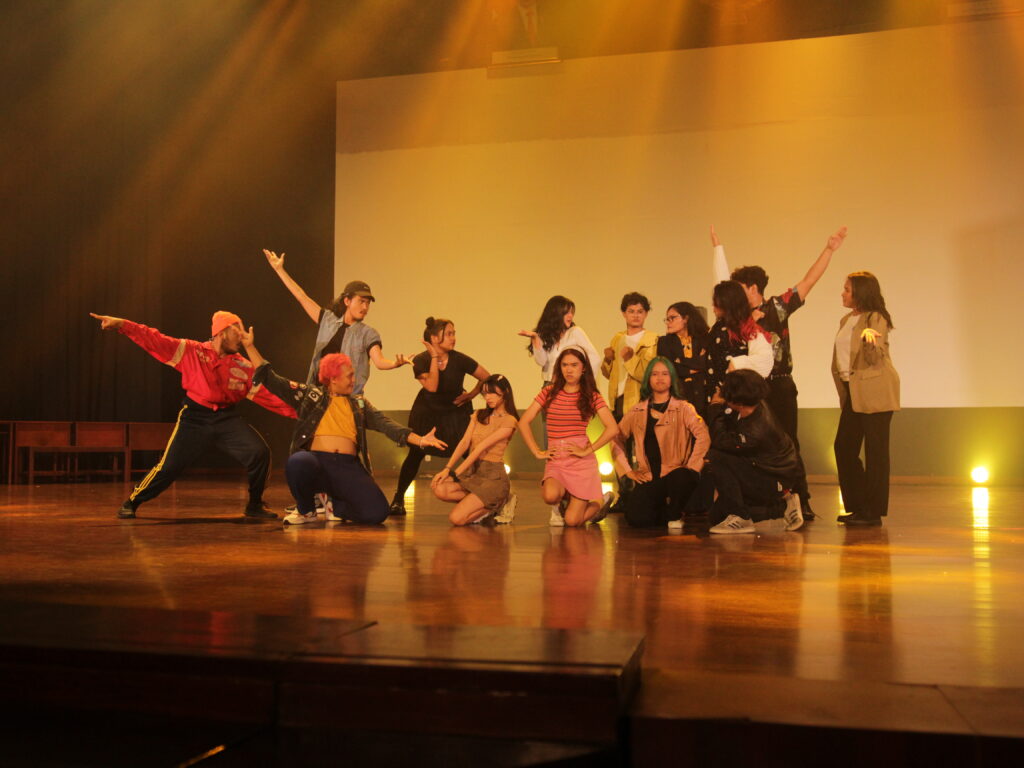
Yogyakarta (29/08/2022) – String Movie Maniacs (SMM) kicked the start of the fall semester of 2022 with its self-produced horror short movie “Elevator”. The screening was held on the Monday evening of August 29, 2022. In-room of S. 203, Gedung Sastra Universitas Sanata Dharma Yogyakarta, attend the representatives of three Student Associations in Sanata Dharma University’s Faculty of Letters, as well as the representatives of English Letters Student’s Activity Units and Lens Club.
During the two years of the pandemic, watching movies together through collaborative online platforms seemed to be the only feasible activity in SMM. “Elevator” is not only the first offline project that they produced. It is also the first project that enabled SMM’s members to meet face-to-face and get to know each other in real life for the first time.
“I want to give my biggest appreciation because you guys (SMM) have been independently productive. Hopefully, this can be a good start since this is the beginning of the semester and our beginning of offline activities. Hopefully, there will be many more works coming, and expanding – not only internally in SMM,” stated Ma’am Sri Mulyani the advisor of SMM in her opening speech.
The hope for further collaboration between student’s activity units was also delivered by Mr. Simon Arsa Manggala the Vice Chairperson of the English Letters Department, “For the other student’s activity units, hopefully, this can be the event to get to know each other and work together. Who knows if it is possible to collaborate: SMM made a film about badminton, (Avis) Puppet Show play badminton, for example.

“This film was made within a relatively short time and with a limited amount of crew, and these limitations are not unreasonable. Because of the drawbacks in the online years, the process of making it was also faced with obstacles,” explained Yosi Brilianto, the director of the short movie. The process of script reading, shooting, and editing was all done within a week. The movie involved one director, one scriptwriter, 5 cast members, and 7 crews in total. What is more, is that the shooting process was done with only one camera and some additional equipment lent by Lens Club.
The cast also shared the difficulties that they had experienced in the shooting process. Especially, in the elevator scene taken at the elevator of Driyarkara Auditorium, Sanata Dharma University. On the day when the shot was planned to be taken, INSADHA (Inisiasi Sanata Dharma) was still ongoing and there were a lot of noises, creating an unconducive situation for the shooting.
This particular scene was also hard to take because of the height difference between Nasya and Goldy, the actresses who played Sandra and the ghost. They had to repeat the takeover and over again, even until they were scolded by the cleaning service in the auditorium due to the concern that the elevator may be broken if they use it too often without time breaks.
However, all these drawbacks did not stop String Movie Maniacs to amaze the audience with its horror short movie premiere. “Elevator” successfully crept on the audience, slowly, but surely. The thrill of the movie made some audience watch through the gap of their fingers. Some others even screamed when the jumpscare came. Once the screen went black, the room filled in total darkness, and the credit scene appeared, the audience loudly clapped their hands, both proud of SMM and relieved that the horror had ended. Click here to watch “Elevator” a horror short movie by String Movie Maniacs.
Journalist: Agnes Seraphine
Editor: Cynthia Olga Handoko (QC)


